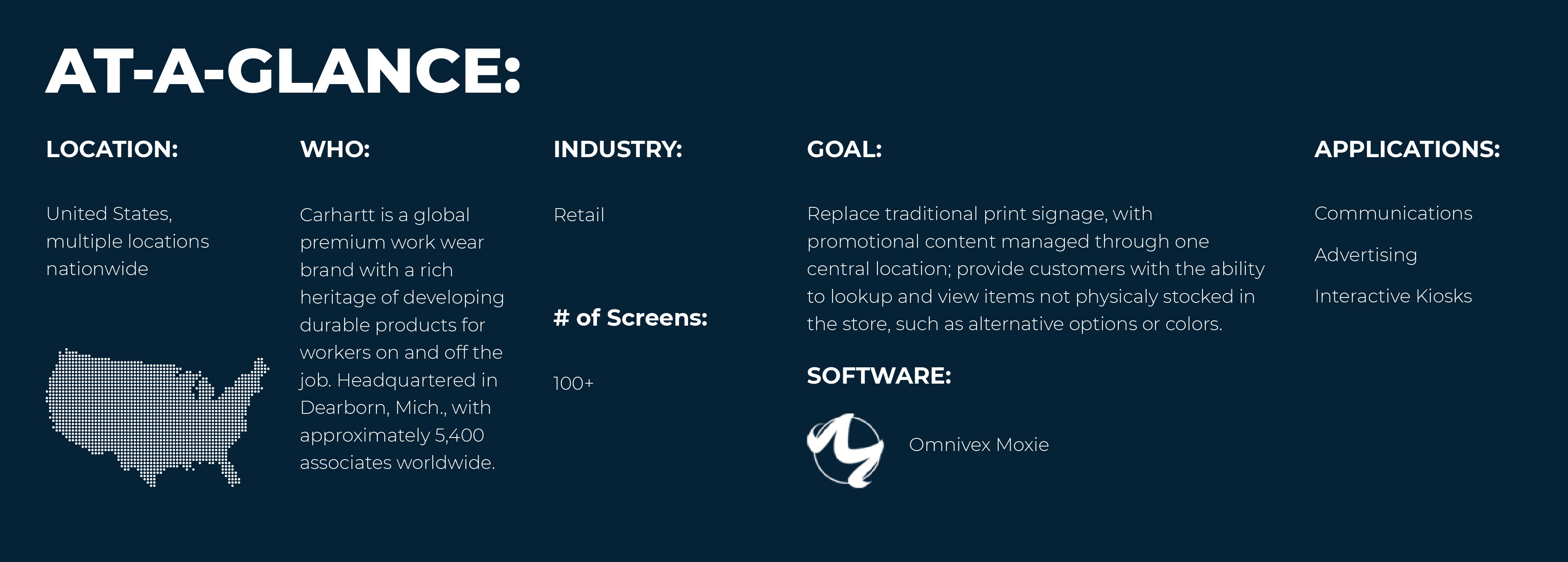
About Carhartt
Established in 1889, Carhartt is a global premium work wear brand with a rich heritage of developing durable products for workers on and off the job. Headquartered in Dearborn, Mich., with approximately 5,400 associates worldwide, Carhartt is privately owned and managed by the descendants of the company‘s founder, Hamilton Carhartt. Within the past several years, Carhartt has opened a number of company-owned retail stores nationwide, to bring their products directly to the consumers who rely on them every day.
The Scope
Historically, Carhartt has relied on print signage and catalogues to communicate detailed information about the products carried in the stores. They were looking for a more dynamic way to replace traditional print signage, and showcase the features and details about merchandise available in the stores. They also wanted to provide access to lookup and view items not physically stocked in the stores such as alternative options or colors. Other considerations included finding a solution that could be run locally at the kiosk, which would limit internet bandwidth usage in the stores vs. just sending customers to surf the web looking for information. Finally, Carhartt wanted a solution where content could be controlled and scheduled from one central place and reflected across all systems, allowing content to be updated in real-time if necessary.
The Solution
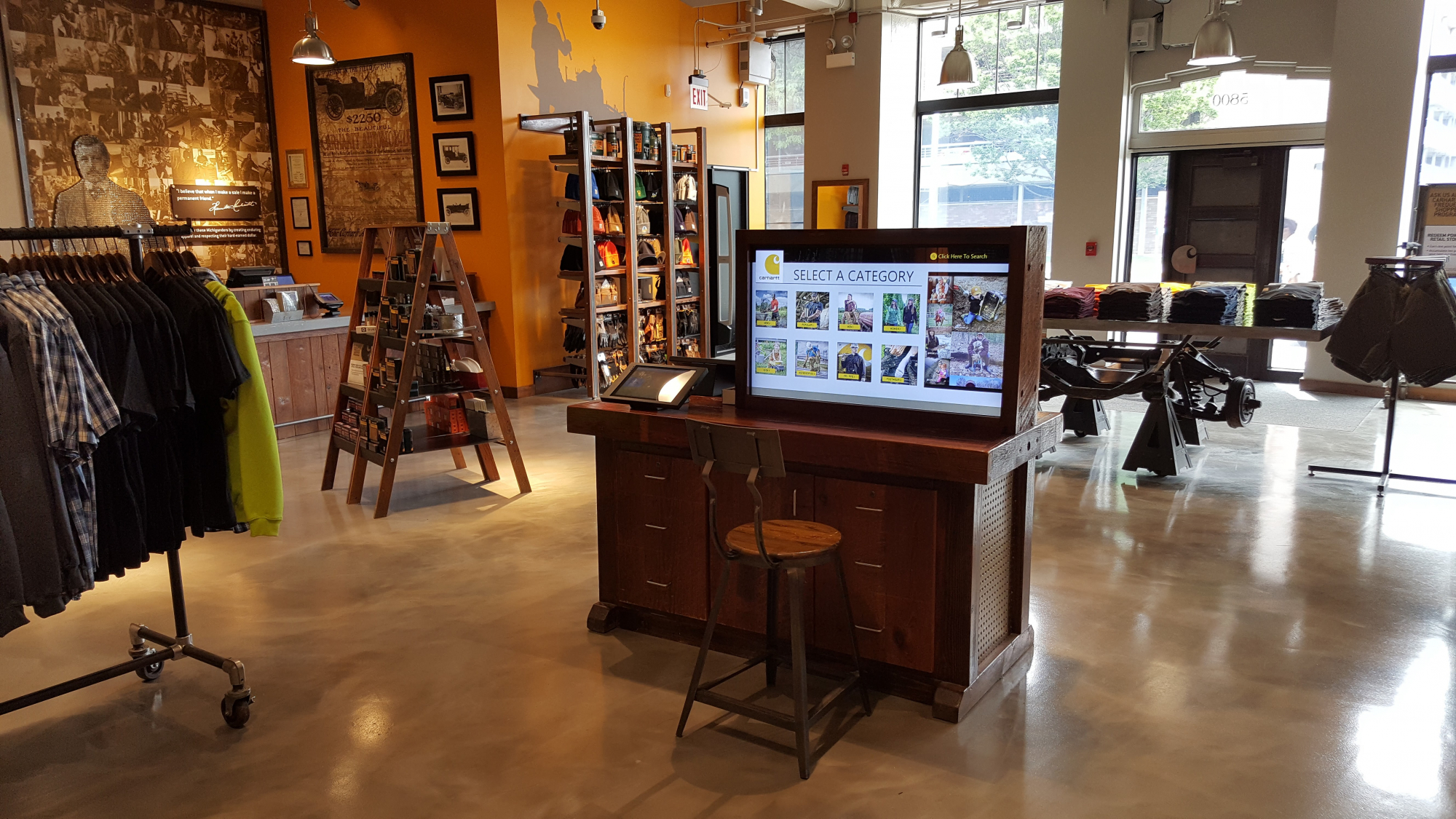 Carhartt is using the Omnivex solution to power its in-store interactive kiosks and touchscreens. They started with a pilot in 3 stores and have now rolled out to more than 100 kiosks across 18 locations nationwide. When customers aren’t actively engaged with the kiosks, a series of digital signage panels rotate across the screens, showing season-appropriate images, unique products in certain departments, as well as active sales or promotions.
Carhartt is using the Omnivex solution to power its in-store interactive kiosks and touchscreens. They started with a pilot in 3 stores and have now rolled out to more than 100 kiosks across 18 locations nationwide. When customers aren’t actively engaged with the kiosks, a series of digital signage panels rotate across the screens, showing season-appropriate images, unique products in certain departments, as well as active sales or promotions.
In the center of each store there are a pair of 42” touch screens in landscape mode, providing the full catalog of Carhartt merchandise. These screens provide customers with an interactive catalogue experience where they can view product details, alternative options, styles, or colours including items that may not be available at that store.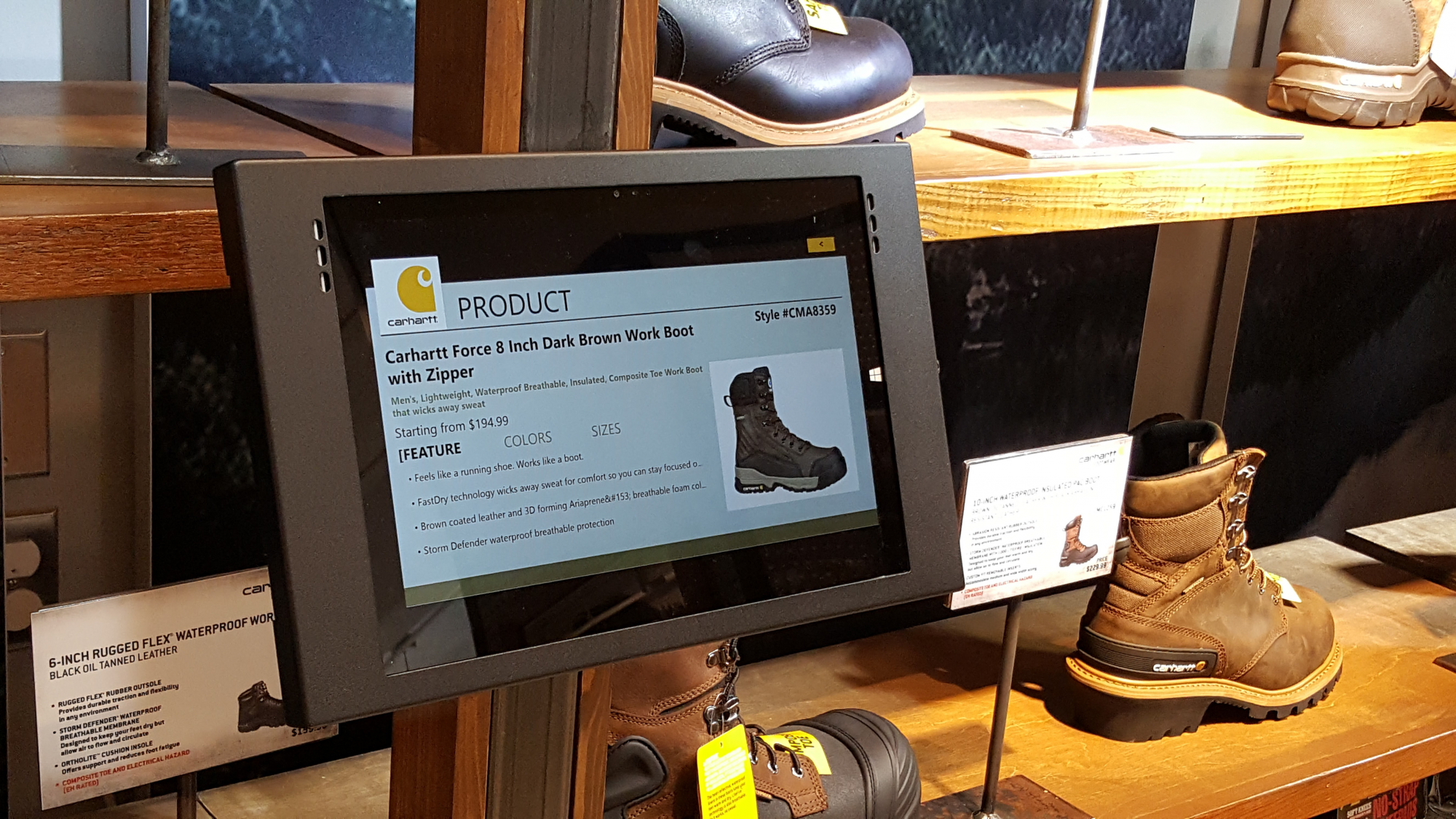
The footwear department and high-visibility areas feature two Microsoft Surface Pro 3 tablets with content specific to each area. In other various departments throughout the store, there are 3 additional 22” touch screens in portrait mode, with content that rotates based on the current promotion or featured products in those areas.
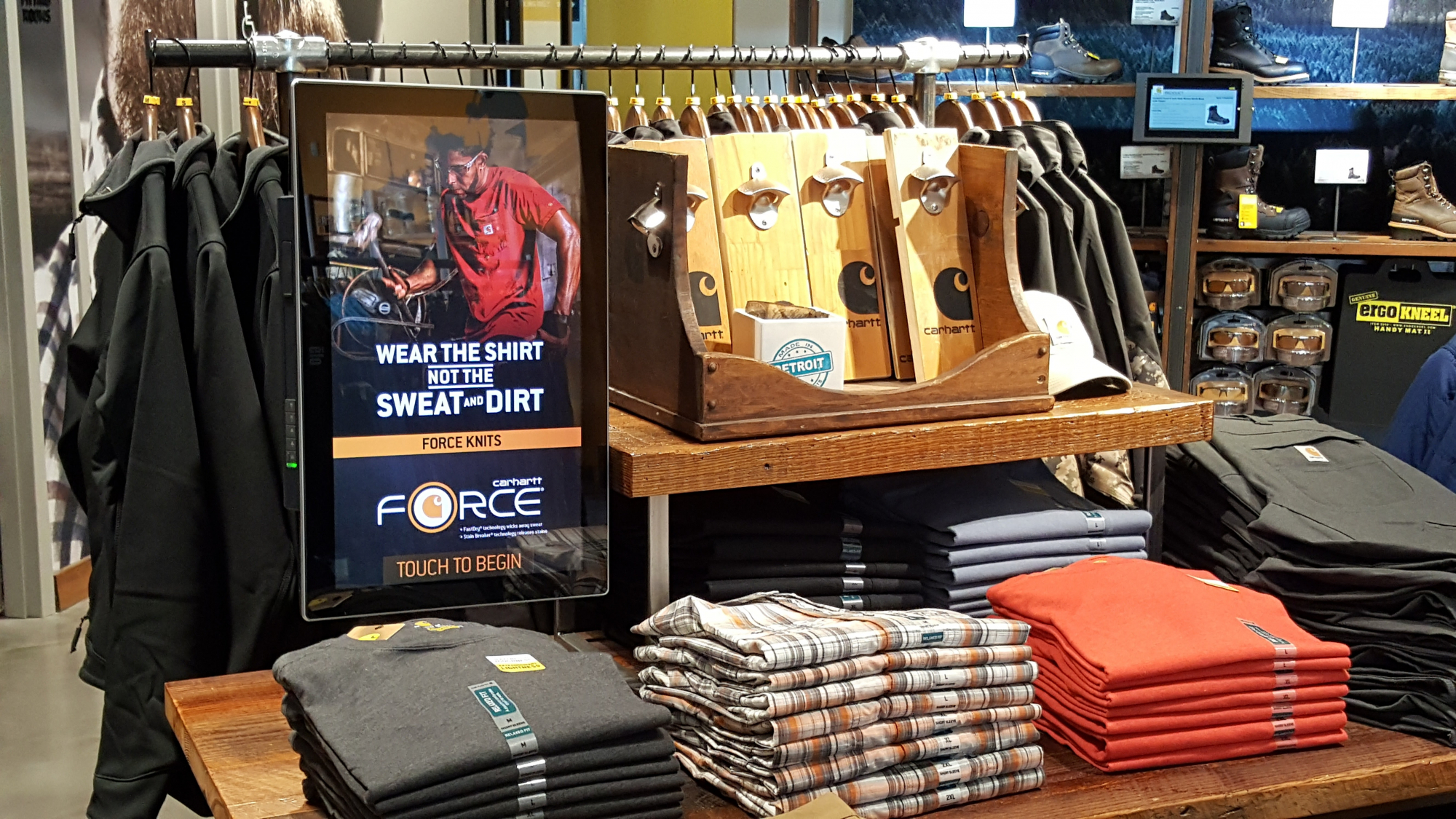 The screens are all centrally managed from the head office in Dearborn; however, localized content and information can be pushed out to individual stores such as special events like local festivals, concerts, or sidewalk sales. Unique regional or seasonal promotions and imagery can also be controlled per store, such as hunting versus fishing content or warm versus cold weather content.
The screens are all centrally managed from the head office in Dearborn; however, localized content and information can be pushed out to individual stores such as special events like local festivals, concerts, or sidewalk sales. Unique regional or seasonal promotions and imagery can also be controlled per store, such as hunting versus fishing content or warm versus cold weather content.
The Results
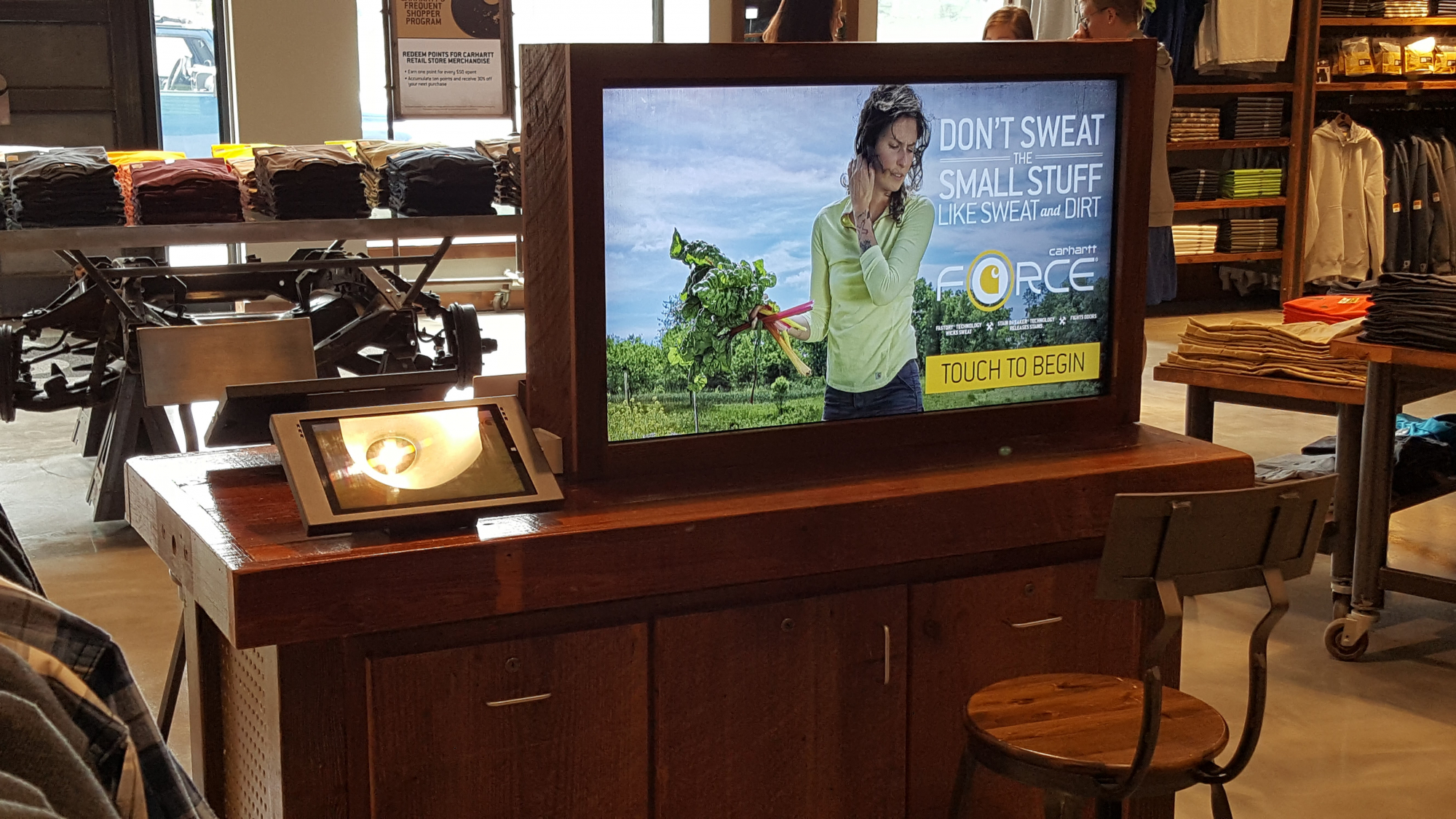 The pilot in the first three stores was completed within a very tight timeline and was very successful for Carhartt. The Omnivex solution has provided a way to easily manage content across the stores from a central location. It has also provided a drastic increase in the functionality available to Carhartt on their interactive screens, including providing the ability to monitor how many people are interacting with the screens and what content viewers are most interested in. The ability to showcase all colors, sizes, and options available without having the items physically in the store provides a number of benefits including the ability to find exactly what the customer needs. As Carhartt moves forward with their rollout to additional stores, there are sure to be lots of new ideas about further extending the use of digital communications in the stores.
The pilot in the first three stores was completed within a very tight timeline and was very successful for Carhartt. The Omnivex solution has provided a way to easily manage content across the stores from a central location. It has also provided a drastic increase in the functionality available to Carhartt on their interactive screens, including providing the ability to monitor how many people are interacting with the screens and what content viewers are most interested in. The ability to showcase all colors, sizes, and options available without having the items physically in the store provides a number of benefits including the ability to find exactly what the customer needs. As Carhartt moves forward with their rollout to additional stores, there are sure to be lots of new ideas about further extending the use of digital communications in the stores.
